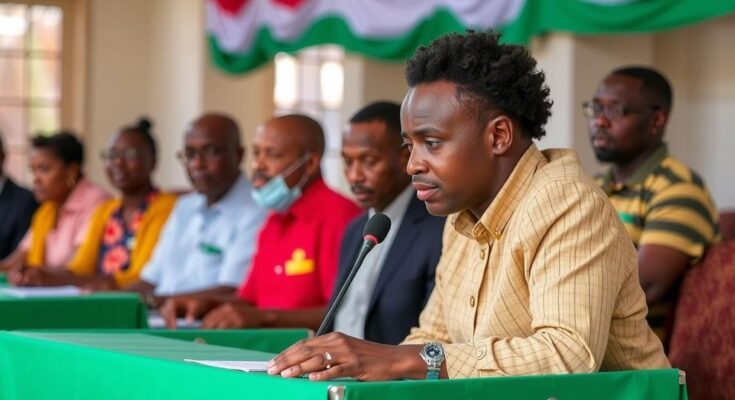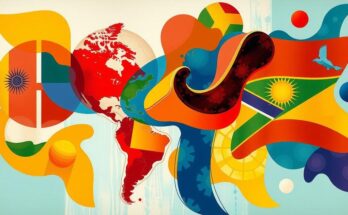Chad is voting in parliamentary elections for the first time in over a decade, amid significant opposition boycotts and political instability. This election is a pivotal moment following the death of President Idriss Deby in 2021, but skepticism about its fairness remains high due to reports of state repression and violence in the region.
Chad is undertaking parliamentary, regional, and municipal elections for the first time in over a decade, reflecting the military-turned-civilian government’s effort to establish a democratic framework following the death of long-time leader Idriss Deby Itno in 2021. Major opposition parties are boycotting these elections, dubbing them as a mere facade aimed at legitimizing the ruling Patriotic Salvation Movement (MPS) and its political dynasty. Despite being one of Africa’s economically challenged nations, Chad is attempting to fulfill a promise of democratic reform amidst widespread security challenges and political unrest.
On Sunday, approximately 8.3 million out of Chad’s 18 million population are expected to vote for a new parliament consisting of 188 seats, in addition to choosing local and regional representatives. This voting process follows a protracted period marked by delays attributed to financial constraints, a pandemic, and political disturbances. The last parliamentary elections were held in 2011, and since then, the country has been marred by political instability, coups, and a military council overseeing governance.
Concerns regarding the transparency and integrity of the elections are amplified by ongoing violence in the region, including armed conflict along the eastern border with Sudan and attacks by Boko Haram. Rights organizations assert that the absence of full opposition participation raises significant issues about the fairness of the electoral process. “It will be difficult to have a credible election without inclusivity,” stated Isa Sanusi, the country director for Amnesty International in Nigeria. The boycott by prominent parties reveals the existing distrust in the political structure and calls for reforms to ensure a level playing field before any elections.
In addition to the political tensions, media restrictions imposed by the authorities complicate the situation further. Recent bans on online journalists from broadcasting electoral content have been met with protests, as many accuse the government of attempting to stifle dissent and manipulate the narrative surrounding the elections. Despite the government’s assurances for a transparent process, widespread skepticism persists regarding its ability to conduct free and fair elections.
Overall, the Chadian elections present a complex landscape characterized by opposed political aspirations, societal unrest, and a distinct desire for democracy amid enduring authoritarian tendencies.
The electoral prospects for the MPS appear favorable, potentially solidifying the party’s long-standing dominance in Chadian politics. Rights and opposition groups urge the authorities to not only ensure a fair election process but promote inclusivity, as government actions leading up to the elections continue to provoke serious concerns. Chadian opposition parties, while boycotting the electoral process, vowed to monitor the elections closely and take necessary actions to contest any reported violations.
Chad is on the verge of conducting its first parliamentary elections in more than a decade, following a period characterized by delays attributed to financial issues and the COVID-19 pandemic. The transitional military government, which arose after the death of former President Idriss Deby in 2021, has made efforts to shift toward civilian rule by organizing these elections. However, many opposition parties remain skeptical of the process, raising concerns about the legitimacy and fairness of the elections amidst reports of repression and autocracy.
The parliamentary elections in Chad represent a critical juncture for the country, aiming to end a transitional period following a military takeover. However, the significant boycott from opposition parties highlights deep-seated distrust in the electoral system and a desire for political reform. With rising security threats and media restrictions, the prospects for a free and fair election remain in question, illustrating the broader challenges in Chad’s endeavor toward democratic governance.
Original Source: www.aljazeera.com




